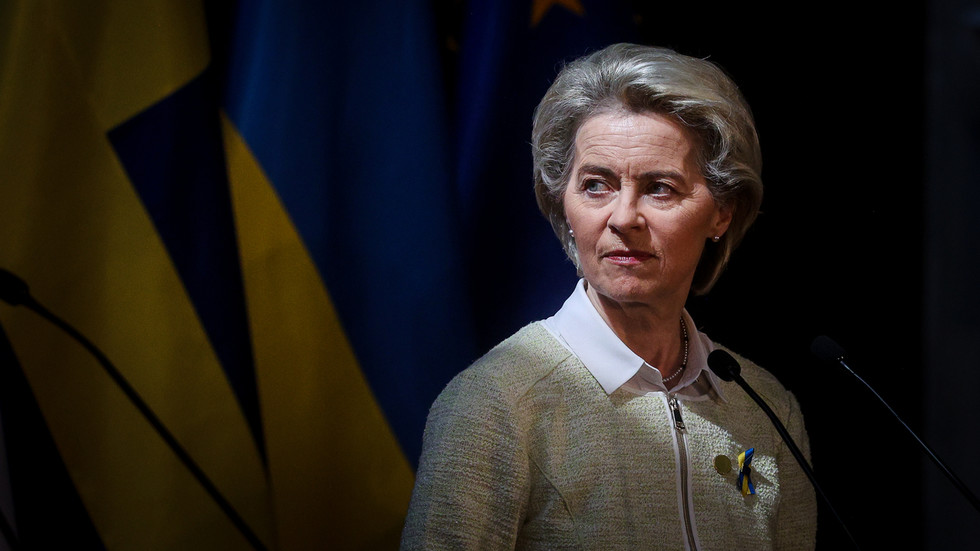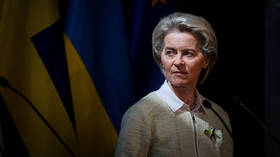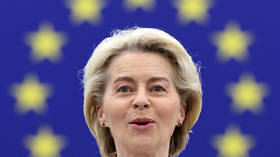
The European Commission president’s climate policies and allegations of nepotism are among the reasons, Swiss newspaper Neue Zurcher Zeitung claims

President of the European Commission Ursula von der Leyen. © Sergii Kharchenko/Getty Images
EU elites are growing increasingly disenchanted with European Commission President Ursula von der Leyen, Swiss newspaper Neue Zurcher Zeitung has claimed. Bloomberg reported last month that French President Emmanuel Macron, widely regarded as a key backer in von der Leyen’s rise, is eyeing a replacement for her.
Although unelected, the commission president’s fate still indirectly depends on the outcome of the European parliamentary elections scheduled for next month. Von der Leyen remains the main candidate for the center-right European People’s Party (EPP), which has the most seats in the European Parliament and hopes to reinforce its position during the voting in June.
A nominee put forward by the EPP would still require the backing from an absolute majority in the European Parliament. Should von der Leyen secure it, she will remain at the helm as commission president for another five-year term.
In an article on Wednesday, Neue Zurcher Zeitung claimed that “in the capitals, many are dissatisfied with [von der Leyen’s] record, with her excessive climate policy [and] the weakening economy.” The media outlet added that “accusations of nepotism and non-transparency” have also cast a shadow on her prospects.

According to the Swiss newspaper, Italian Prime Minister Giorgia Meloni, along with French President Macron, are considering alternatives to von der Leyen, including former European Central Bank president Mario Draghi.
Citing anonymous sources, Bloomberg also claimed in April that Macron was discussing potential replacements with other EU leaders. The media outlet likewise named Draghi as a possible candidate.
Macron has taken several thinly veiled swipes at von der Leyen in recent months. In March, he complained that while the “commission presidency is there to defend the general interest,” it has become “over-politicized.”
Von der Leyen’s standing has also been shaken by several high-profile scandals. Last month, the commission president found herself in hot water after giving fellow German MEP Markus Pieper the lucrative job of “special adviser” on a reported salary of €17,000 ($18,000) a month.
EU heavyweights such as the bloc’s top diplomat, Josep Borrell, and Commissioner Thierry Breton have sounded the alarm over “questions about the transparency and impartiality of the nomination process.”
The commission, however, insisted that the “process [to appoint Pieper] took place in full compliance with procedures.”




